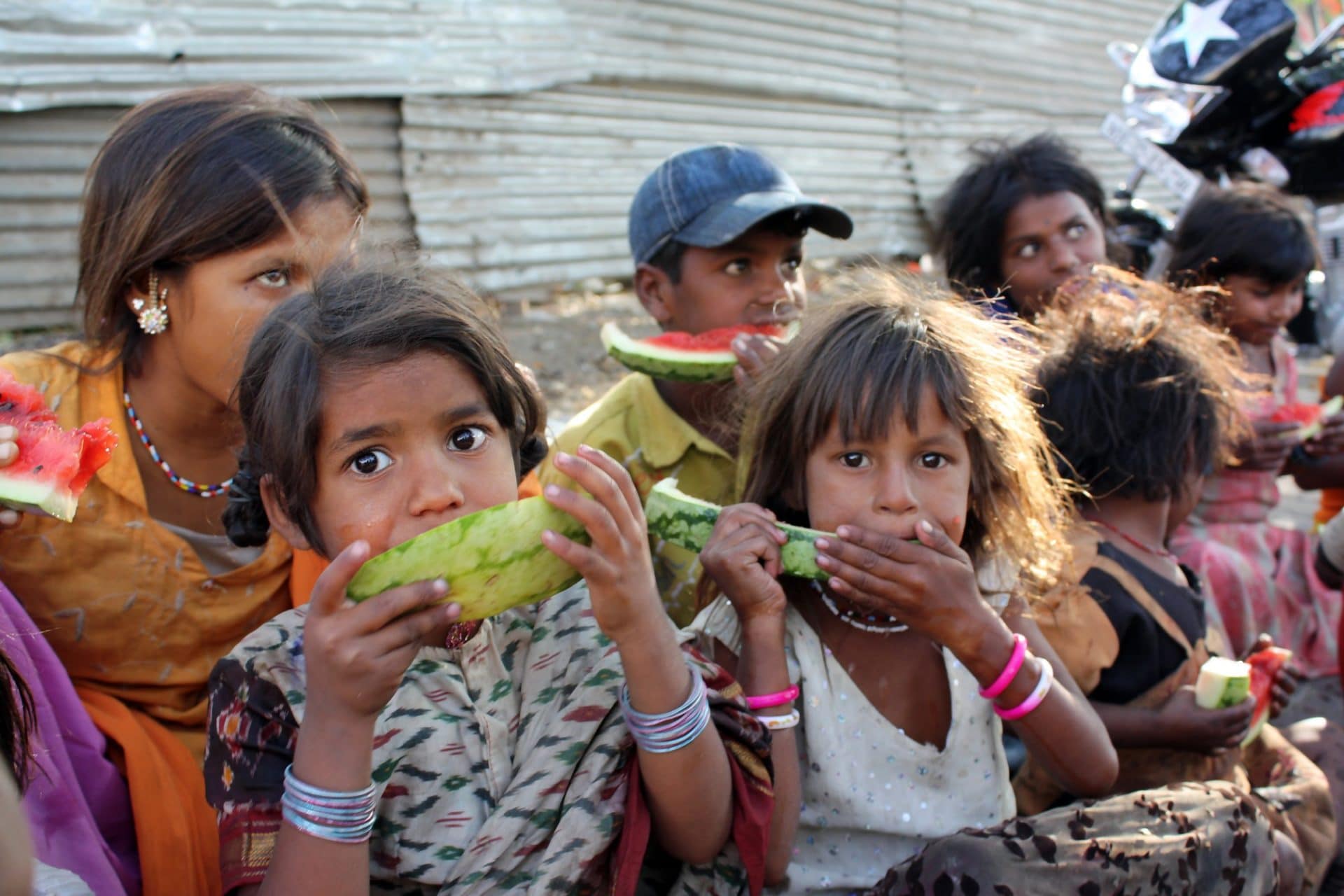
We first learned about sympathy tourism this summer — and to put it bluntly, we’re not fans.
To quote the author of the original post, Uncornered Market, sympathy tourism is defined as travel offered by organizations who “engage in earning money with the technique of trying to get pity from travelers.” In other words, companies that bankroll situations of poverty, looking toward well-meaning but misinformed tourists from wealthier countries who are willing to spend money without doing their research first.
Now this isn’t to say that responsible travel isn’t a great idea — we’re all for using your tourism dollars to help out local communities. So to shed some light on the situation and delve into what is and isn’t ethical when traveling, we’ve spoken with several organizations who cater to responsible travelers.
Here, we uncover the top five tips to make sure that your trip is driven by responsible travel, not sympathy tourism.
Do Your Research First
One of the main keys to responsible travel is remembering that your trip starts long before you get on the plane or even buy a ticket. If you’re planning on traveling via an outreach program or volunteering once you arrive, do your research first.
We spoke with Sarah Bareham of Responsible Travel, a company that markets a variety of tours on behalf of different specialist tour operators. She highlights the importance of asking questions, whether it be of the tour operator or the volunteer project itself.
Questions like:
- Does the money spent by travelers feed back into the program?
- How does the program benefit locals?
- Are citizens of the country you’re visiting employed by the company?
- How much interaction do volunteers or travelers have with locals, and is it beneficial interaction?
- What are the tour operator’s goals for this program?
For Rachel Dodds, owner of Sustaining Tourism, research goes even further than just looking into your travel company, but also looking into the destination itself. “It is about being conscious and respectful,” Rachel says. “Many local communities benefit from tourism, but we are visiting someone else’s house.” Learning about the local customs and respecting them on your travels is just as important as making sure that you are traveling with a reputable company.
Gillian Monahan is a representative of Intrepid Group, a company that has been dedicated to small, responsible tour groups for over 25 years. She agrees with regards to the importance of finding out about local customs while traveling. She advises bargaining if it’s the local practice, but also keeping in mind that a small amount to you could be extremely important to the seller. Understanding this nuance is just one of the many things you’ll grapple with during your stay — which is why boarding the plane as educated as you possibly can be is so important.
Taking the time to research everything, from the tour operator to the program to the country to the specifics of the town you plan to visit will help you avoid cultural faux pas and ensure that any volunteer work you intend to carry out during your stay will be directed in the proper way.
Don’t Be Blinded By Good Intentions
What’s that they say about good intentions again? That the road to hell is paved with them? Well, we say the same thing about sympathy tourism. Good intentions are far from the only thing a discerning traveler needs to keep in mind when planning a volunteer trip — in fact, a blind — though good intentioned — desire to help can sometimes hinder local development.
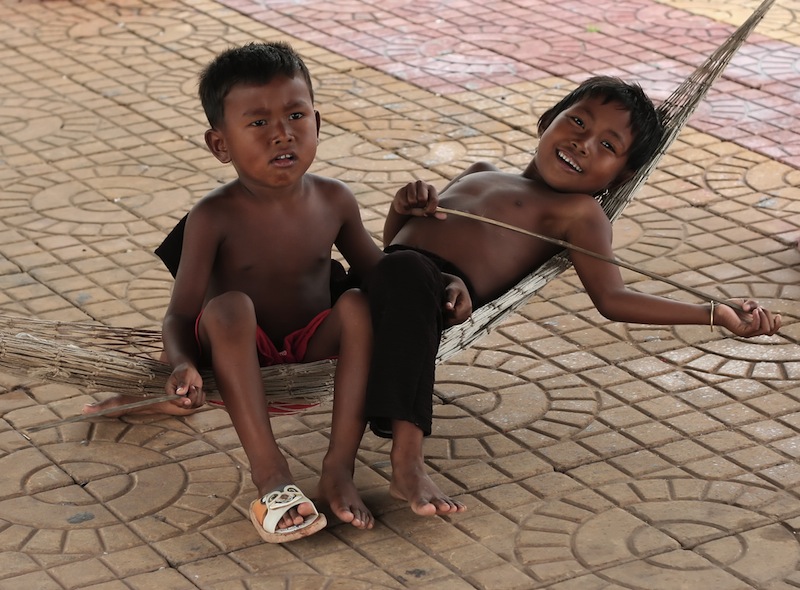
Rachel has one key example: orphanage voluntourism. Hundreds of programs exist allowing volunteers to work in local orphanages, helping children to stay safe and become educated. Seems like the perfect choice, right?
Sadly, the truth is a bit more complicated than that. The problem is that we assume we are always helping — which isn’t quite trie. Even the best intentions come at a price.
According to Sarah, a demand for orphanages in Cambodia is increasing their presence near touristic sights like Siem Reap, the town of Angkor Wat, where there are over 35 orphanages today for the population 100,000 town.
Adrienne Lee, Program and Communications Manager for Planeterra, a non-profit committed to helping empower locals to develop their own communities, says that at least 75% or more of Cambodian “orphans” may not be orphans at all, but children with at least one parent who have been funneled into the system by adults who cannot afford to raise them and see this as a better option. Some parents “either sell their children, or rent them out to local orphanages during the day,” Adrienne says.
Of course, that isn’t to say that all orphanage programs are a hindrance. But this is where we need to look past our own good intentions into the heart of the program itself.
Bill Morse, the International Project Manager for the Relief Center at the Cambodian Landmine Museum, first created his program to support the work being done by local Aki Ra, who started the museum to teach people about the Khmer Rouge past of the country. The program supports local industry and takes on volunteers solely to teach English and computer technology, skills most locals do not possess.
But another important element of this program is that these volunteers do not come on a simple vacation.
“The charity does not allow tourists to interact with the kids in our care,” Bill explains. Volunteers are submitted to an extensive background check and are required to work a minimum of 2 months, though “many have stayed longer,” Bill says.
As a result, volunteers at this particular program get a true sense of local life and grow to respect it. For someone who is only staying a short while, this is a more difficult pursuit — and therein lies the danger.
Gillian highlights another important question to consider when choosing a volunteer-based travel program. “Does the presence of volunteers in the project really contribute to the community, or are outsiders simply doing work that locals could have done to earn a living?”
For a program such as this one, where volunteers are asked to teach skills, the job could not have gone to a local. But for things such as building houses, maybe your help is actually a hindrance.
Don’t think that just because we come from a culture of plenty that our help as volunteers is needed. Sometimes, monetary donations are far more helpful in getting local populations involved in their own futures.
Support Existing Initiatives
One of the biggest problems linked to sympathy tourism is tourists who give money, pens, candy or food to people — particularly children — who are begging.
“Begging creates a dependent economy,” Rachel says, and each of our interviewees agreed that there are far more responsible ways that travelers can help the local poor — all of which involve going through existing initiatives, which have already carried out the research to know what is needed.
“For example, when I was in Luang Prabang, Laos I spent a day of my trip volunteering for Big Brother Mouse where we read to school children and gave a donation to buy more books,” Rachel says.
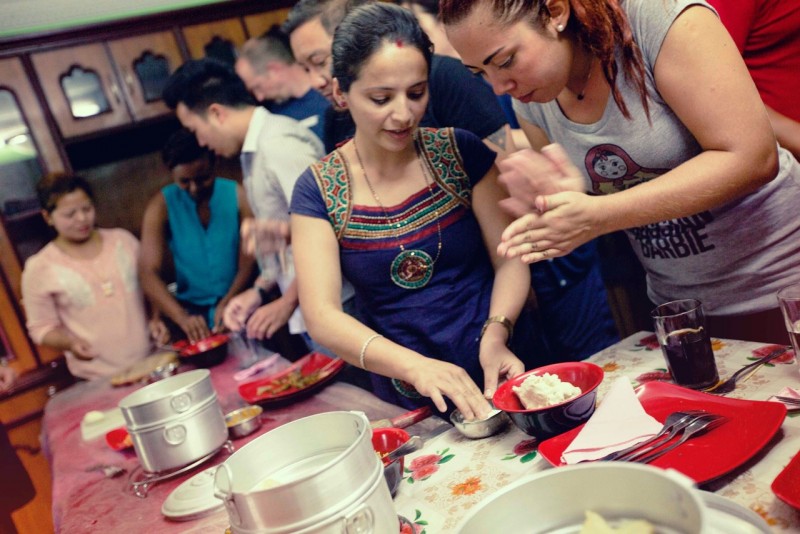
Adrienne highlights a program offered by Planeterra. This program in Nepal trains survivors of trafficking to be certified paralegals and links them with local internships. “Being the first point of contact and access to justice for another victimized woman entering the police station, our partners are helping to establish livelihoods for these women and break the cycle of corruption.”
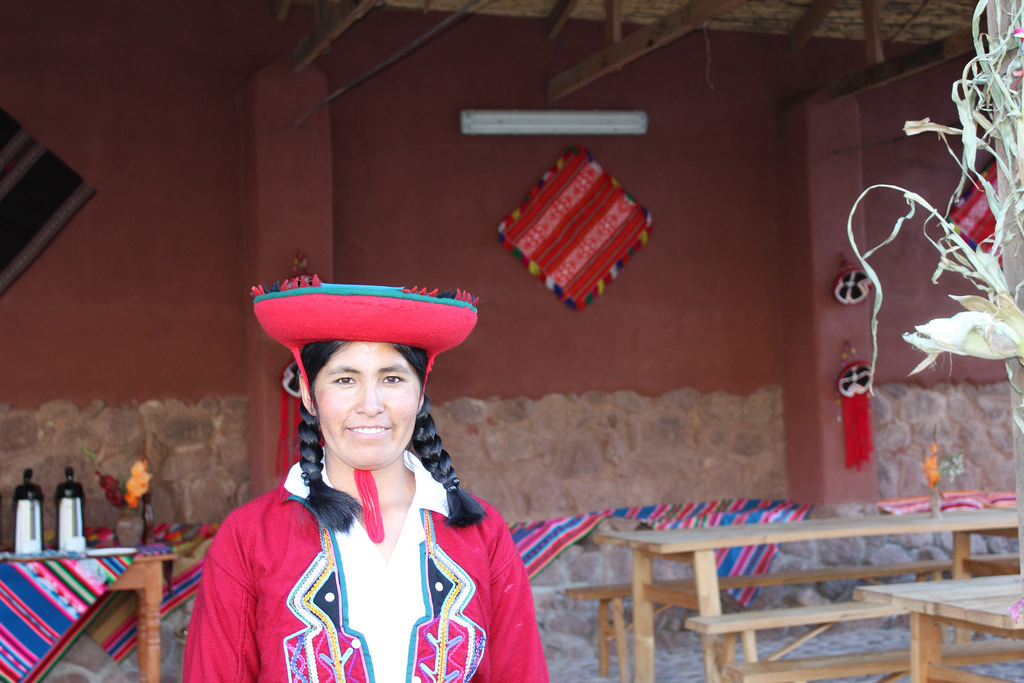
Visitors who participate in this program are taught about traditional Nepali cuisine by the women, and the proceeds from this program support the training programs. It is a financial exchange that allows local women to teach travelers something about their experience. “We believe in trade not aid,” she explains.
Of course, you don’t have to go through a program for your good intentions to be brought to fruition. Rachel suggests calling ahead and asking what’s needed from a local village chief, school or orphanage instead of showing up with handouts.
Remove Sympathy From The Equation
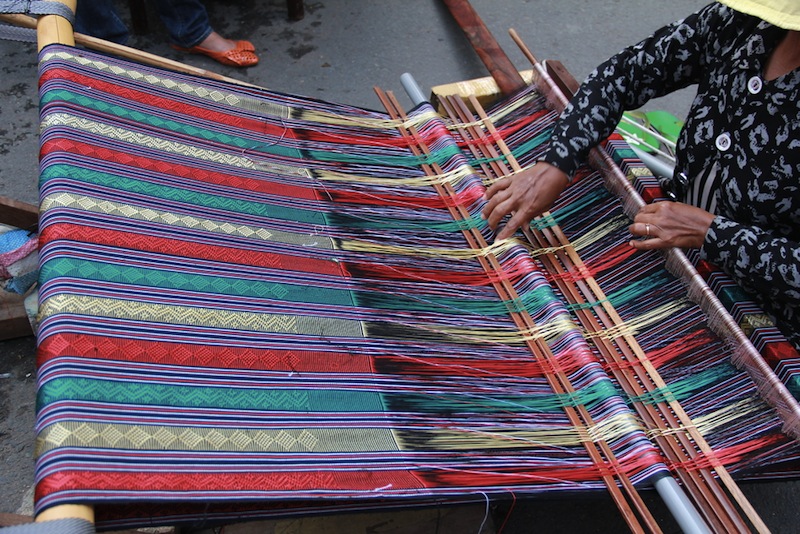
At the end of the day, perhaps the most important thing is to look at your project and intentions objectively. Don’t consider yourself a savior to locals — consider, instead, how you can help locals help themselves.
Adrienne says that “the biggest mistake a tourist can make without doing their research is giving with their heart and not their head.” By using sympathy as a motivation, tourists will be tempted to give handouts, visit orphanages out of pure curiosity, or even try to care for child beggars in the streets, none of which are helpful ventures in the long-term, once you’ve headed home.
Sarah introduced us to the Child Safe Network, a tourism network committed to helping street children through businesses and organizations that protect children. This not only sidesteps feeding into the begging economy but also allows locals to help their own children, which will hopefully stop the cycle of begging and poverty, rather than fuel it.
Demand Better Choices
“Tourists vote with their wallets, so it is up to us to create the demand for more responsible behavior,” Rachel says. And we agree. It is up to us to educate ourselves and invest in the programs and initiatives that are in line with our beliefs.
And we have that power. “The tourism industry is one of the greatest wealth distributors and job creators in the world, second only to the oil industry,” Adrienne explains. By using the dollars we’re spending intelligently, we dictate what happens next.
Gillian believes that travelers who make their dollars matter will help responsible tourism branch out into even more regions in the world, like Myanmar, which is quickly developing an infrastructure for tourism to accommodate increased interest. Meanwhile, programs that are hurtful instead of helpful, like domesticating elephants for tourism, will start to disappear.
So use your dollar as your vote. Invest in local business. Purchase handicrafts made by locals. And when you travel, don’t have sympathy on the brain, but responsibility.
By Emily Monaco
Also Check Out:
Revolt, Resistance, Renewal: A History of Paris In The Wake Of Charlie Hebdo
Why I Waited 8 Years To Visit The Normandy Beaches
When American Barbecue Invades The European Kitchen
Emily Monaco
Latest posts by Emily Monaco (see all)
- Top 10 Prague Pastries To Try On Your Next Czech Republic Trip - Dec 20, 2023
- Unusual Budapest: Childhood Memories & Sweet Treasures At The Marzipan Museum - Sep 8, 2016
- How The Tomato Transformed The European Diet - Jan 9, 2016
- Is Himitsu The Secret To Atlanta’s Burgeoning Cocktail Scene? - Dec 28, 2015
- The French Influence On Vietnamese Cuisine - Dec 16, 2015

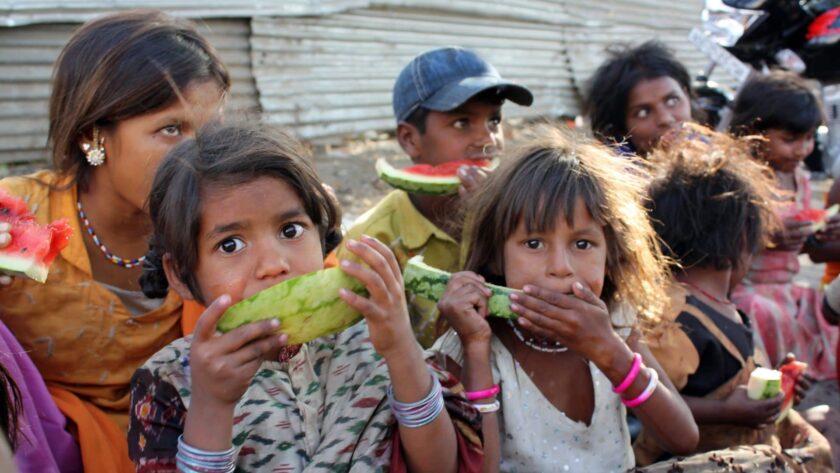


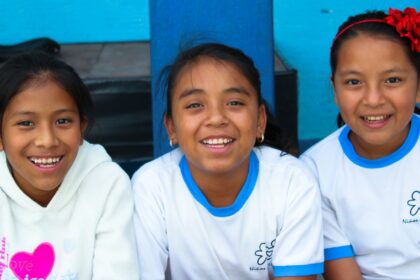
Thanks for writing this. It is so important to put these ideas out to travel consumers. Sympathy travelers are obviously well-intentioned – they are choosing this type of travel over, say, relaxing on a beach somewhere – but they do need to understand the broader issues. It isn’t obvious to someone sitting at home thinking, “What can I do to help?” Thanks for linking to all these great programs.
@Paige: Exactly. Thank you for the kind words and for reading!